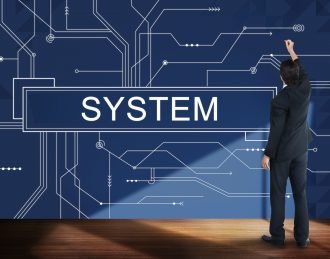The leadership perils of big data
Big data is beginning to have an impact in many areas of business, from supply chain and marketing information through to HR and people analytics.
However there is a big difference between data and information. Information is where we organize and create insights from the data that we can do something with.
I remember vividly the experience I had over 20 years ago, moving from individual functional spreadsheets to an integrated MRP system with a common set of data.
Previously each function such as purchasing, manufacturing and logistics maintained their own Information Systems and we spent as much time discussing the meaning of the data as actually solving our problems.
Once we had a common MRP data stream a lot of these problems went away, we found that the spreadsheets had been written to answer specific functional questions rather than to optimize the supply chain as a whole and many of them had significant errors in them. Because the MRP data was properly managed, questions of interpretation reduced significantly.
However there was almost no one in the business who really understood whether the outputs from all of this data made sense. We tended just to accept them as we had no real grounds to challenge them – that was partly a good thing but also slightly worrying.
After attending a business statistics training program I learned that some phrases, such as “it’s within normal variability”, could be used to head off most questions about my budgets from people who had no idea what I was talking about.
Successful use of big data is going to rely on human beings having the ability to ask the right questions and interpret the answers accurately. These are not skills that I have observed being in widespread supply.
Asking the right questions involves having some commercial understanding. If you don’t understand how your trade channels work, for example, then how do you know what questions to ask? Unfortunately the people with this commercial context are not necessarily the ones who are skilled in accessing the data.
Similarly, the people with a strong data orientation may not be the people with the real world experience to understand the practical impact of the way they manipulate the data.
There is also such a thing as too much data. I worked with the management team of a web-based insurance company a couple of years ago. Their site generated millions of data points very quickly following any action they took. Everything was an experiment and they very quickly got feedback on what worked and what did not. Obviously this data rich environment enables you to try many things and to learn very quickly. However it seemed to have a negative effect on the leadership team of the business, they spent the whole time with their heads in their laptops, dragged into the minutiae of the business rather than stepping back and leading it.
It may be that we will need to insulate leaders from a certain level of detail to make sure they stay focused on the right things.
Finally, when you receive the answers back to your enquiry of your big data set, do you know what they really mean? What confidence can you give to these answers? We all know that answers to information questions depend on the assumptions we’ve made. In a very complex and interdependent system these assumptions may not be at all clear.
I once worked with a fantastic finance director who seemed to have a mental model of the company’s accounts in his head. If the sales director asked a “what if” question on pricing or sales volume he seemed to be able to mentally work through and calculate the bottom-line impact in seconds.
Who do you have in your business that will be able to take a look at the outputs of a big data request and say “that looks about right”, or are you happy ceding sufficient faith to the raw data or standard reports written by others to do that for you?
As very often in an era of technological change, people will very likely be both the most important and the weakest link.
As you delve into the big data pool, make sure you’re also building the human capability to generate insights by asking the right question and also to be able to look at the outputs and make sensible and informed commercial decisions based on them.
I expect that initially some of this will be taken on by specialized insight functions as the supply of this capability will be limited in existing employees. Over time, however, these skills will need to become much more distributed into our management and professional populations.

Explore our training programs to see how we can help.
Agile & Digital Training Matrix Management Training People and purpose Training Virtual Teams TrainingEducate yourself further with a few more or our online insights:
30 years of experience learning with a range of world class clients
We work with a wide range of clients from global multinationals to recent start-ups. Our audiences span all levels, from CEOs to operational teams around the world. Our tools and programs have been developed for diverse and demanding audiences.

Tailored training or off the shelf modules for your people development needs
We are deep content experts in remote, virtual and hybrid working, matrix management and agile & digital leadership. We are highly flexible in how we deliver our content and ideas. We can tailor content closely to your specific needs or deliver off the shelf bite sized modules based on our existing IP and 30 years of training experience.
For more about how we deliver our keynotes, workshops, live web seminars and online learning.